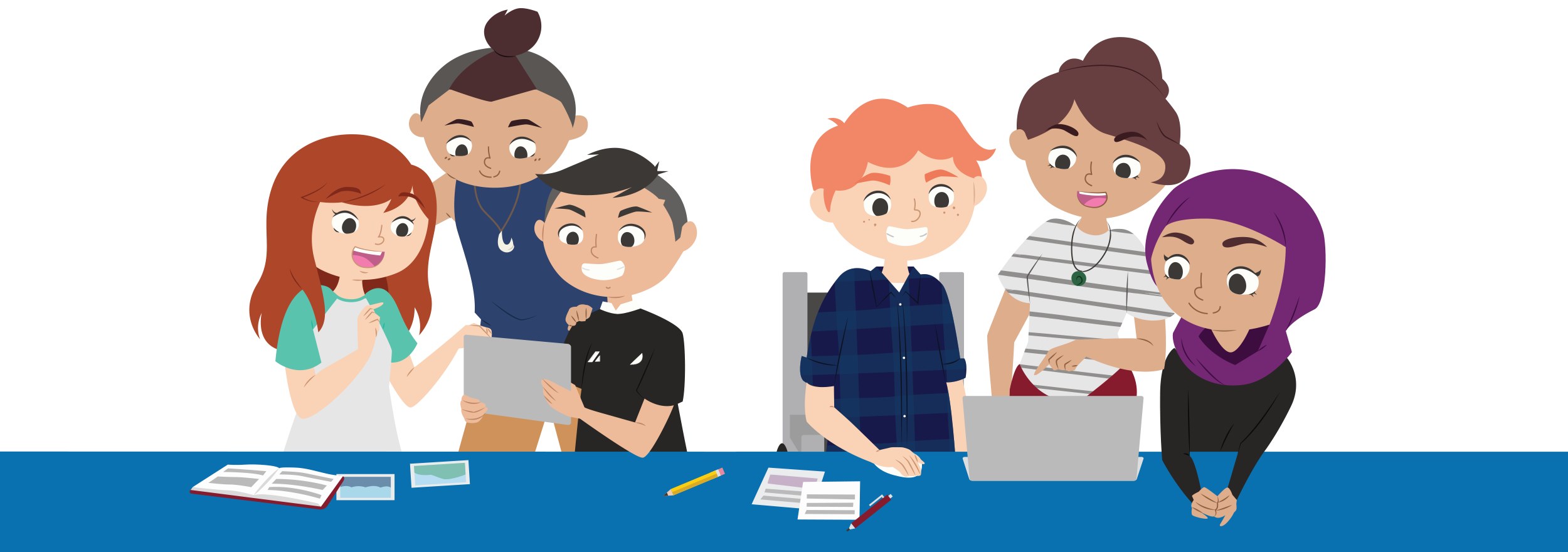Transforming te taiao
This entry will help you find information on the changes made to the environment by pre-European Māori, and their care and connections to te taiao (the natural world).
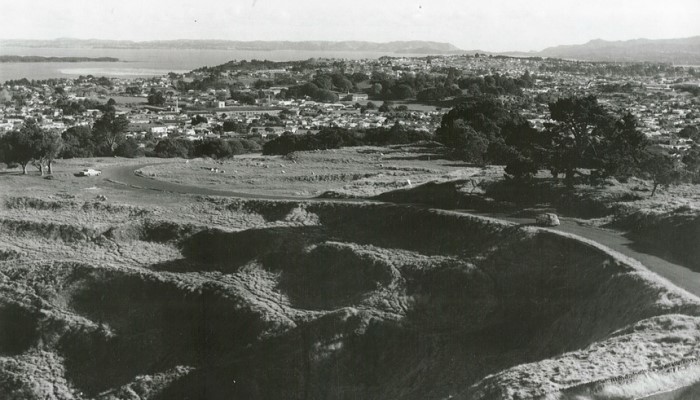
Image: Maungakiekie Pā, One Tree Hill, 1965 (16695862754) from Archives New Zealand on Wikimedia Commons.
Keywords
Here is a list of some keywords based on how Māori cared for and made changes to te taiao, and named places in Tāmaki Makaurau. Use this list of keywords when searching the collections and websites in this entry.
Eel weir (pā auroa): A device created by Māori for catching eels in rivers, streams and lakes.
Fallow fields: Māori would use a field for two to six years and then leave it uncultivated (not grow anything on it).
Kaitiakitanga: Māori world view of guardianship, protection and conservation.
Kiore (Pacific rat) and kurī (Polynesian dog): Both these animals were brought to New Zealand on canoes by the Polynesian ancestors of Māori.
Kūmara gardens (māra kūmara): Kūmara was one of the main crops that Māori grew in Tāmaki Makaurau.
Maramataka: Māori lunar calendar that marks the phases of the moon.
Pā: Māori fortified village or settlement.
Rāhui: Māori tikanga or ritual to restrict access to or use of an area for a short time.
Stone fields: Māori gardens of earth and stone mounds used to grow taro and kūmara on the volcanic soil of Auckland.
Storage pits: Used by Māori to store produce such as kūmara and taro over the winter season.
Tips; Before searching it can be useful to come up with a list of words to use. These are sometimes called keywords or search words. They can be the name of a person, place, or event you are researching. You can leave out small words like ‘the’ and ‘of’ and just choose the main ones, eg ' storage pits'. We can always change our keywords or add more if we need to.
Tips: Also keep in mind that there are different names or spellings for words. Or they could have changed over time.
Auckland resources
Here are some websites from iwi in Tāmaki Makaurau, Auckland Libraries, and Auckland museums and heritage sites. They will help you find books and information on early Māori life in Tāmaki Makaurau.
Ngāi Tai ki Tāmaki
Tamaki Makaurau is home to a number of iwi. This website comes from Ngāi Tai ki Tāmaki (Ngāi Tai).
Use the tab Our Stories and select the button for Origin Inform.
Read the history behind the names of places in Tāmaki Makaurau such as Rangitoto, Lake Pupuke, and other Ngāi Tai territories.
Tips: Some websites have .iwi in their url. This tells you that the website belongs to an iwi and likely has Māori knowledge (mātauranga Māori).
Makaurau Marae
This marae is for Te Wai o Hua, one of the main iwi of Tāmaki Makarau.
Go to the menu on the right of the page to select Our History.
The page opens to The history of our marae.
Read the history of the name Ihumaatao, and the story of Karangahape.
Tips: Not sure what Māori word means? You can use the Te Aka Māori Dictionary or Paekupu to search for the meaning.
Auckland Libraries Catalogue
This catalogue from Auckland Libraries will help find books on Aotearoa New Zealand and Auckland's histories.
Search the catalogue using keywords like 'Auckland Māori place names’ or ' Auckland Māori history'.
You can get fewer results by using the filters under Refine by.
Select a book that interests you.
Go down the page to Edition information to check if the book can be borrowed or if it's for In library use only.
Look further down the page to Related Resources to find other titles related to this search.
If you have an Auckland Libraries library card you can request the item to be sent to you at your local library.
Tips: You will find lots of books that have been written over 50 years ago. While they are good sources of information, we need to remember the context and time when they were written.
Tips: If the status of the book is 'In library use only', it means the book can only be used in the library and can't be taken home. In this case, you will need to fill out a form or speak to a librarian about reading the book in the library.
Auckland Libraries Research Centre
Collections from the Research Centres include heritage collections and research books on the history of West Auckland, Māori and Pacific titles, family and local history, New Zealand war history, migrant and minority history and more. Most of the books are for in-library use.
Select a Research Centre to check on their opening hours and location.
Speak to a librarian if you need help.
Tips: If the status of the book is 'In library use only', it means the book can only be used in the library and can't be taken home. In this case you will need to fill out a form or speak to a librarian about reading the book in the library.
Heritage et AL
The Heritage et AL blog is written by librarians and is a useful way to find information about Auckland Libraries heritage collections.
look for Labels from the filters on the left of the page. It has links to local history, collections, manuscripts, oral history and more.
For example, select North Auckland to find Takapuna: A Name for Many Things. This story explains why Māori named this area Takapuna.
Use the search box at the top of the page for more direct results.
The keyword 'Pā' will bring up the blog Pukekiwiriki Pā Historic Reserve. This story is about an early Māori battlefield with earth defences and storage pits.
Tips: Blogs can be good for looking at how things have continued or changed over time. Remember, stories can be told in different ways so it’s helpful to look at multiple information sources to find different perspectives.
Kura — Local History
This database is a collection of local history essays, including Dalmatian Genealogical & Historical Society resources.
Enter the name of a place in Auckland eg 'Manukau Harbour'.
Choose something to read eg Naming the Manukau Harbour.
Items that cannot be viewed online have an online form. Fill out this form to contact Auckland Libraries if you want to use an item, or speak to a librarian if you need help.
Tips: Make sure to read the 'Usage Rights' or check with Auckland Libraries for the use of these items as copyright rules may apply.
Auckland Libraries - YouTube
The Auckland Libraries YouTube channel has many videos about Auckland’s heritage, recordings of library events, conversations with authors, talks, stories, activities, music and more. Some of the talks are delivered by historians on their specialist subjects.
Go down to the playlist called Te ao Māori.
Watch the video Ruapotaka Mārae: The Past about the urban marae and the people who have connections to it.
Tips: You will find a huge selection of videos on YouTube. We recommend you view videos from reliable sources like National Geographic, History Channel, BBC etc. These are official channels from organisations.
Kura — Photographs
Browse photographs, illustrations and works of art from the 1800s to today.
Try the search words 'kumara gardens' to find the image Sign on Maungarei, Mount Wellington, 1989.
This image describes Māori history on Maungarei.
Use the word 'fishing' to find the image of Māori netting flounder in Whangape Harbour, North Auckland.
Tips: Always remember to check the copyright or usage rights of images. This will tell you if you need permission to use the image, and how to attribute the image.
Kura — Heritage Maps
Use this collection to discover historic maps and atlases of the Auckland region.
Enter the words 'Māori pā' into the search box.
View the image Map of Auckland showing the location of some pa sites and Marae and archaeological sites of Manukau.
Next, enter the words 'Māori place names' to find the map Tamaki-makau-rau.
This map has Māori place names for mountains, streams and areas in Auckland.
If the item is not available online and you would like to view it, then fill up the form that comes along with the item, then hit Submit Form.
Tāmaki Paenga Hira | Auckland War Memorial Museum
This is one of New Zealand's significant heritage libraries. It has pictorial and art, Māori and Pacific, natural, social, and history collections. It is a great place to visit and check out exhibitions and galleries about topics involving Aotearoa New Zealand's histories.
Use the search feature at the top of the page to enter 'Auckland maunga' or 'Auckland mountains'.
From the tab called Web select Stories.
Read the story Archaeology on the maunga of Tāmaki Makaurau about settlements on the volcanic cones of Tāmaki Makaurau.
Use the words 'Māori stones', then select the tab called Image to find Surveying the garden complexes at Tamewhera.
This has information and images about stonework and stone walls used by early Māori.
Tips: Websites that have .com or .co in the address can have good information, but you need to assess how reliable it is. Check the About us link on the website, if you can find one. That can tell you what the company’s mission and values are.
Tūpuna Maunga Authority
The Authority looks after the ancestral mountains of Tāmaki Makaurau.
Select any of the maunga to learn about its history, and how it was used by Māori who settled in Tāmaki Makaurau.
For example, Maungawhau (Mount Eden) means 'hill of the whau tree'. You can read the reason why Māori cut terraces and dug pits on the slopes of this mountain.
Tips: Some websites have .au, .nz, .uk or other codes in their url. This can tell you which country this website comes from eg .au is from Australia or .nz is from New Zealand. You can check the ‘About Us’ link on the website for more information.
AHI Auckland History Initiative
The Auckland History Initiative from the University of Auckland supports and promotes the histories of Tāmaki Makaurau.
Search for 'Māori gardening'.
Select Unearthing the history of Ihumātao, where the land tells stories to read about Māori gardening systems and ancestral links to this area.
Tips: We like sites like this because they’re reliable. You can tell because of their web address – they have either .govt or .ac, meaning they are from government or educational organisations. They’re also New Zealand sites, so relevant for us.
General New Zealand resources
The websites below belong to government agencies, national museums, archives, libraries, and other reliable sources. They will help you find information on early Māori and their connections to places in Auckland Tāmaki Makaurau.
Te Ara: The Encyclopedia of New Zealand
Te Ara is an excellent starting point for all questions about Aotearoa New Zealand. If we look down to the bottom of the page, we can see that the website belongs to the Ministry for Culture & Heritage, so the information is well-researched and reliable.
Go to Stories A-Z.
Select Auckland Region, then read Māori history.
Or go to Topics and Farming.
Choose Fire and agriculture to read Fire and Māori agriculture.
You could also use the search word Moa to find out how hunting led to its extinction.
Tips: We like sites like this because they’re reliable. You can tell because of their web address – they have either .govt or .ac, meaning they are from government or educational organisations. They’re also New Zealand sites, so relevant for us.
Tales from Te Papa
This collection of mini-documentary series is from the Museum of New Zealand Te Papa Tongarewa. Each documentary is about a unique piece of history from New Zealand.
Go to the section called Tales from Te Papa: Taonga Māori collection episodes.
This is the story of the Polynesian dog (kurī) that was brought to Aotearoa and its use by Māori.
Tips: Lots of Museums (Te Papa Tongarewa and Auckland War Memorial Museum) have their channels on YouTube. The videos are put together by experts and are a great way of learning first hand about history, culture and special collections held in a museum.
DigitalNZ
DigitalNZ searches online resources from New Zealand libraries, museums, universities and government sites in one place. It groups results by the type of information and has lots of primary sources.
Enter the search words 'eel weirs'.
Watch the video Whanganui River - Roadside Stories about the building of eel weirs on the river.
Again, use the search words 'Māori storage pits' and 'Māori kumara gardens'.
Then check out the images of storage pits and stone garden rows built by Māori to grow and store kūmara.
Tips: DigitalNZ is a great website that searches images, videos, audio and articles from a range of collections like National Library, Ngā Taonga Sound and Vision, NZ On Screen, Archives New Zealand, Radio New Zealand, and local and regional newspapers.
Books
You can also visit your local public library for books on Auckland and Aotearoa New Zealand histories. Listed below are a few titles to help you with your search for books on this topic:
Greater Māori Auckland by David Simmons
Shifting grounds: deep histories of Tāmaki Makaurau Auckland by Lucy Mackintosh
The Maori History and legends of the Waitakere Ranges by John T Diamond & Bruce W Hayward
Ancient history of Waitakere by George Samuel Graham
Maungakiekie: the Maori pa on One Tree Hill, Auckland by Aileen Fox
SCIS no: 5496718
More about Auckland
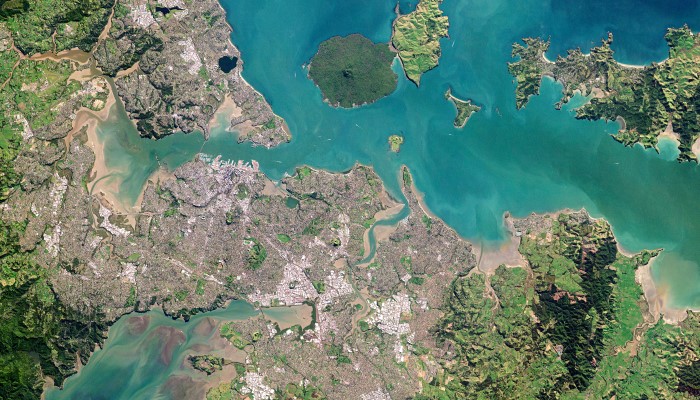
Local iwi
There are many iwi with ancestral relationships to Tāmaki Makaurau. This page lists iwi and websites which have information about their histories.
Learn about local iwi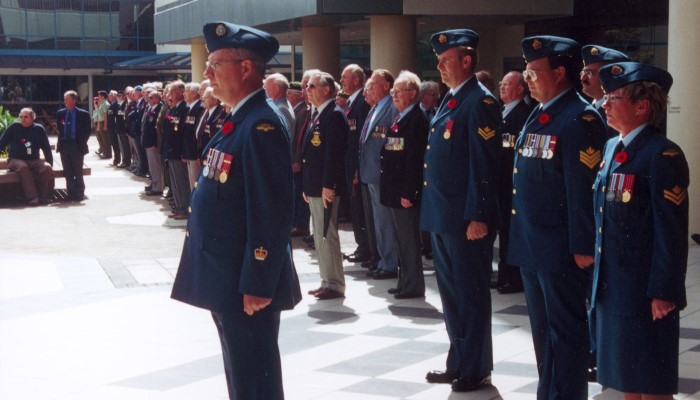
Changing views on conflict
This entry recommends resources to find out how New Zealand's involvement and views of conflict have changed over time, and how wars are commemorated. It also looks at New Zealand's work with the United Nations and current ideas of national identity.
Learn about changing views on conflict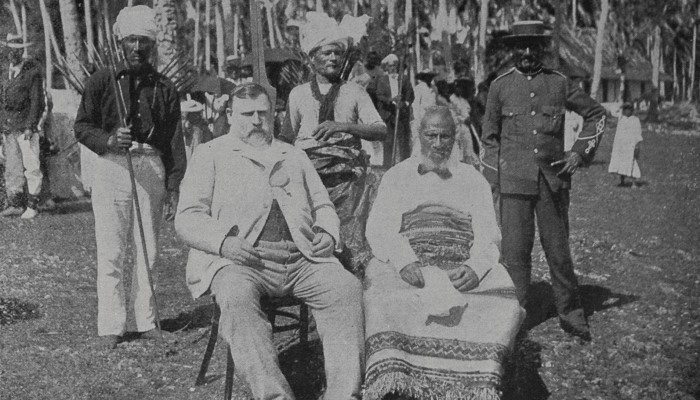
Colonial power in the Pacific
This entry has collections and websites to help explore the history of New Zealand's presence and colonial power in the Pacific. It has examples of the rise of independent Pacific nations and how they sustained their culture and presence in the Pacific.
Learn about colonial power in the Pacific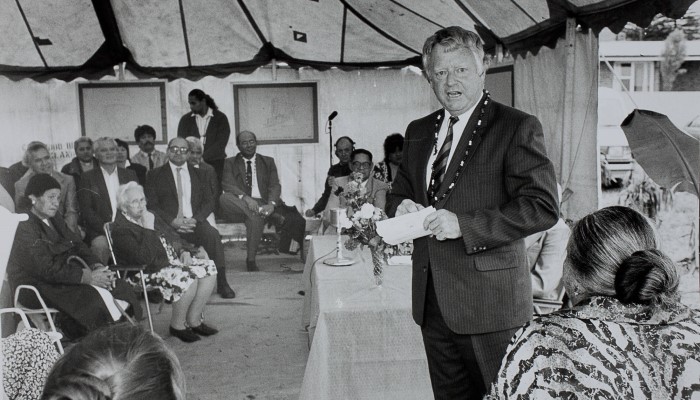
Decolonising the Pacific
This entry will help you find the best websites and collections to explore the decolonisation of the Pacific, including Aotearoa New Zealand's continued interests in the region.
Learn about decolonising the Pacific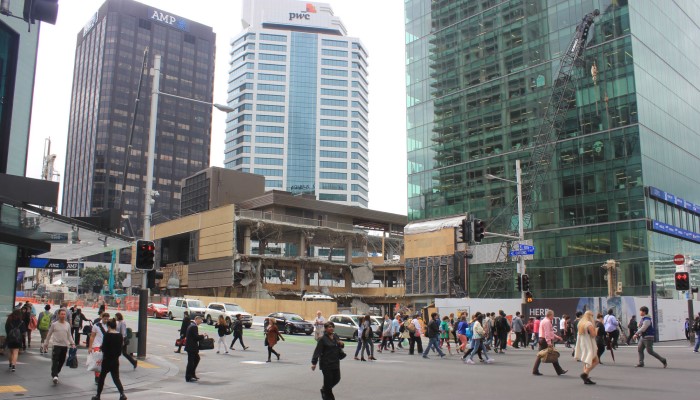
Economic independence and vulnerability
This entry will help you find information about the history behind Auckland's economic progress and independence, and the factors that impacted it.
Learn about economic independence and vulnerability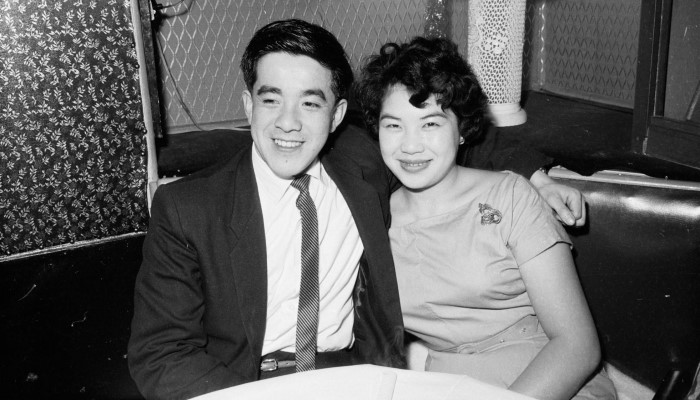
Finding a place in Aotearoa New Zealand
Since the 1700s, new people have immigrated to Aotearoa. Some came in search of a better way of life or because their country was no longer safe. Newcomers could experience racism and discrimination. They also helped shape New Zealand as a country.
Learn about finding a place in Aotearoa New Zealand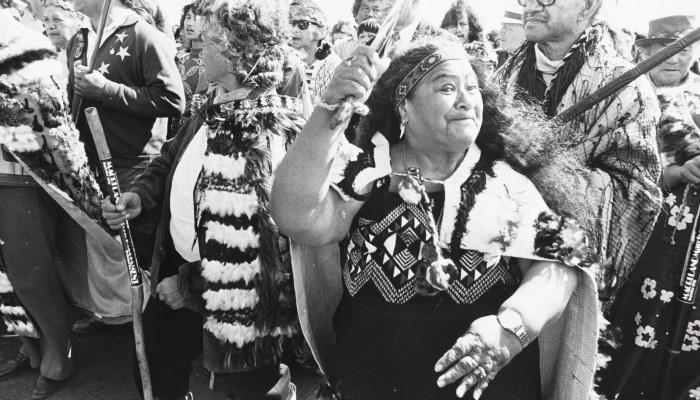
Mana in Māori society
This entry has websites to help you understand the different meanings of mana and its importance in political, social and traditional relationships in Māori society.
Learn about mana in Māori society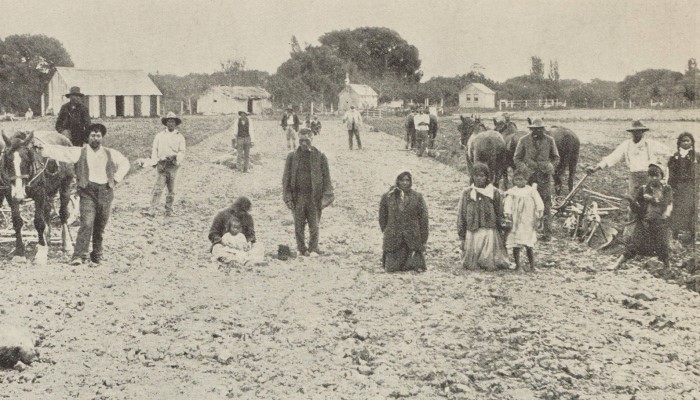
Māori economy: opportunities and challenges
This entry will help you find the best websites and databases that explore the history and development of the Māori economy including the challenges Māori faced from the New Zealand Wars, land sales and decisions made by the Native Land Court.
Learn about māori economy: opportunities and challenges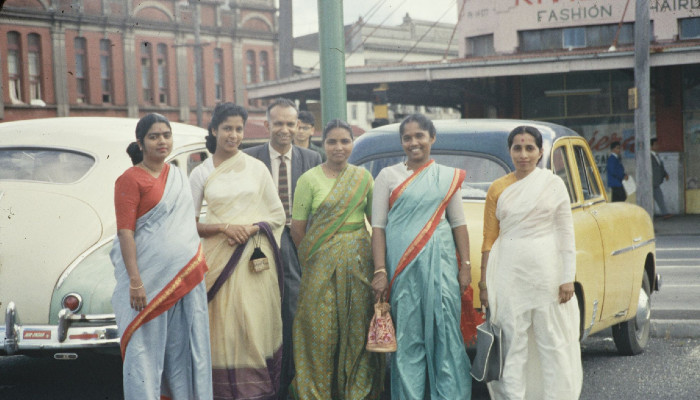
Peopling the colony: inclusion and exclusion
This entry recommends places to find information about the history of immigration to Tāmaki Makaurau and New Zealand. This includes immigration laws and changes, the role of Māori in immigration, and the government's attempt to set right past injustices.
Learn about peopling the colony: inclusion and exclusion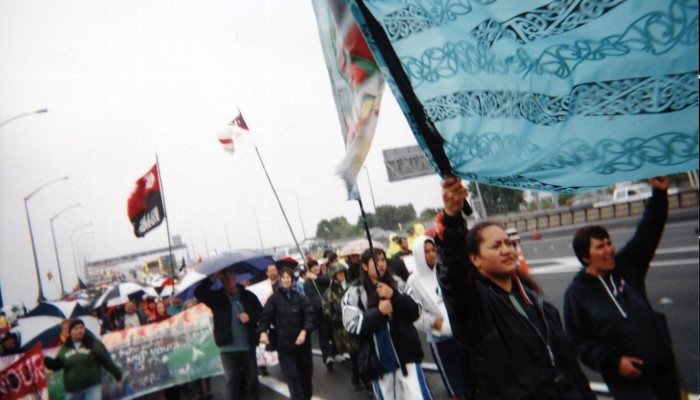
Sovereignty vs rangatiratanga: wars, laws and policies
This entry recommends websites where you can find information about the impacts of land laws on Māori, the New Zealand Wars, and attempts by Māori to find justice and build a relationship with the Crown.
Learn about sovereignty vs rangatiratanga: wars, laws and policies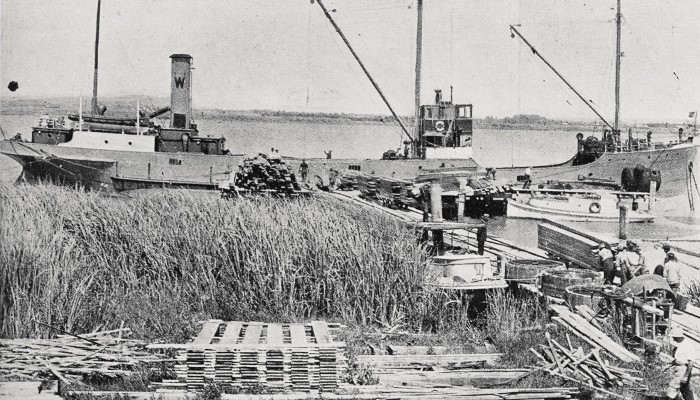
Technology and economic development
This entry will help you understand how advances in technology and land acquisition developed Auckland's economy but greatly impacted Māori and their economy.
Learn about technology and economic development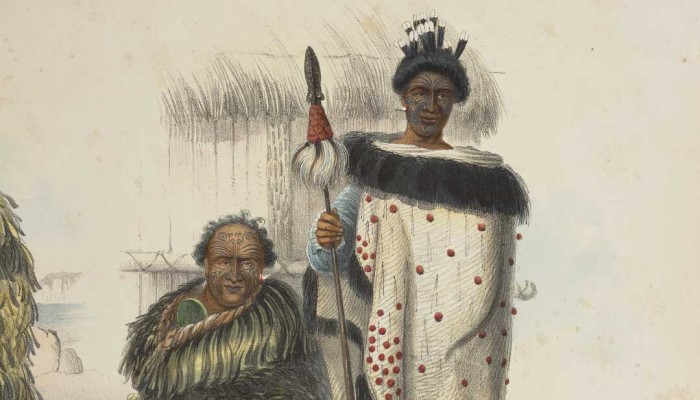
Te Tiriti o Waitangi
This entry recommends websites and collections to find information about He Whakaputanga o te Rangatiratanga o Nu Tireni | The Declaration of Independence and the Treaty of Waitangi | Te Tiriti o Waitangi, their significance, and the signatories.
Learn about te Tiriti o Waitangi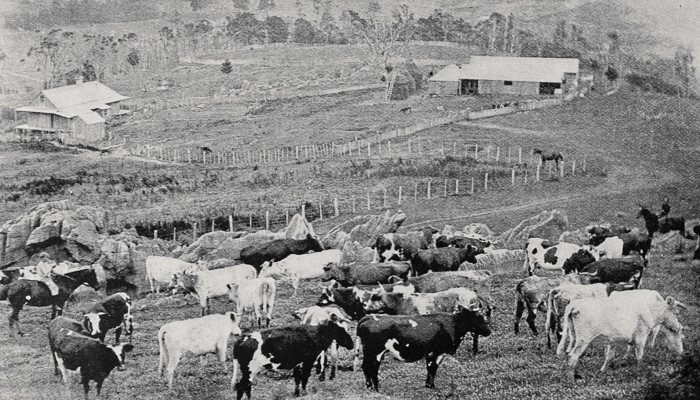
Transforming environments
This entry explores changes made by settlers to Aotearoa's natural environment, their naming of places and features, and efforts to conserve and restore its natural beauty.
Learn about transforming environments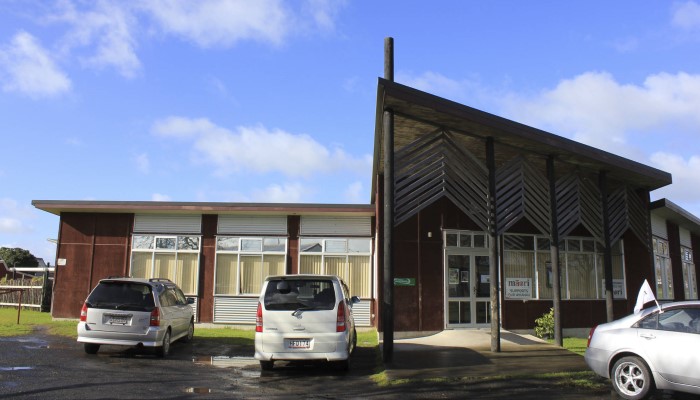
Urbanisation and being Māori
This entry will help you find information about Māori migration to cities, their challenges, and what this meant for their identity as Māori. You will also find information about some protests Māori were involved in to challenge political and social ideas.
Learn about urbanisation and being Māori
